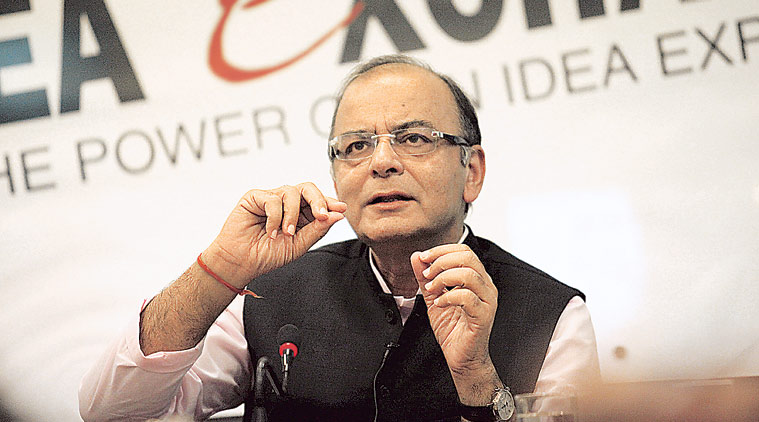- India
- International
Gangrape film violated law, ban justified, says Arun Jaitley
Jaitley said if such a violation had taken place in Britain, the courts would have restrained the BBC.
 Arun Jaitley at the Idea Exchange on Wednesday.
Arun Jaitley at the Idea Exchange on Wednesday.
Union Information & Broadcasting Minister Arun Jaitley on Wednesday backed his government’s ban on the broadcast of Delhi gangrape documentary India’s Daughter, arguing that the film violated both Indian and British laws and that the producers would have been prosecuted had they been Indian nationals.
Speaking at the Idea Exchange programme of at The Indian Express, Jaitley said despite having commented in the past that “a ban or censorship doesn’t work because technology defies it”, he did believe “that the film seriously violated not only Indian law but also the law of the country from where BBC is run”.
Referring to the Verma Committee recommendations following the December 16, 2012 Delhi gangrape case — that led to amendments to the country’s laws — Jaitley said, “Should the film, by some methodology of shooting, have disclosed the photograph and the name of the victim? (If yes), it’s an offence under section 228 (A) of the penal code.”
[related-post]
He said that when the government implements it, “the same set of activists who wanted it to be implemented” oppose a ban. “Not one of them has answered how the BBC film could show a photograph of the girl and give her name. It’s a clear violation of law,” the minister said, adding that “if an Indian producer had done it, I have no doubt …would have been prosecuted in India”.
Questioning the propriety of “allowing a forum to be made available to a rapist during the pendency of his appeal and making this platform available to him to argue why he is not guilty”, Jaitley said, “At least, BBC should have not done it. The appeal (of the accused) is still pending in the Supreme Court. And to provide a forum where he comes up and says — I have not seen the film but from what I have read in the newspapers — that I was on the wheel and this was going on and give horrid details. On propriety, I think such a platform should not have been made available to him.”

Jaitley said if such a violation had taken place in Britain, the courts would have restrained the BBC.
On March 3, the Information & Broadcasting Ministry had issued an advisory to all private satellite television channels not to telecast the documentary, which contains an interview with one of the convicted rapist. The ministry had argued that a telecast would make it appear as a voice for the perpetrator. While the documentary was not aired in India, BBC went ahead and aired it in Britain and other countries through different channels.
Apr 19: Latest News
- 01
- 02
- 03
- 04
- 05





























